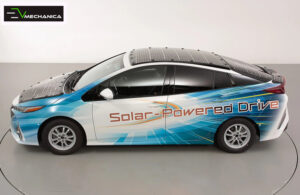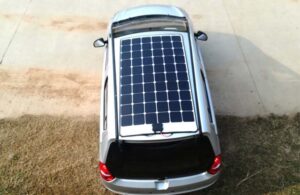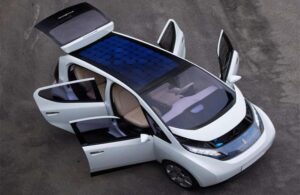 The Solar industry is witnessing this decade’s highest sales trend in terms of mass adoption on a global stage.
The Solar industry is witnessing this decade’s highest sales trend in terms of mass adoption on a global stage.
Apart from its high durability, availability, energy density and climate change effect sustainability value, the reason this solar market is witnessing top-off-the-charts sales can be attributed to the cost-effectiveness of the whole system that guarantees long-term benefits to its users.
Combine it with the dark horse, electric mobility that is slowly creeping up in every country’s agenda, and you will get the perfect combo! Yes, I mean Electric Cars with Solar Panels in Roof!
Don’t believe it yet? Let’s check out some credible facts to squash your doubts.
According to a recent study report in India, range anxiety as well as lack of proper public and private charging stations, make Indian consumers hesitate to switch directly towards electric mobility and installation of solar panels on their rooftop as well as Electric Cars with Solar Panels in Roof comes up as a viable option.
Talking specifically about India’s current situation where fuel prices are rising at sky-high prices, installing solar panels either at home or on an Electric Cars with Solar Panels in Roof can maximize an individual’s savings.
However, before stating more plausible reasons to equip your Electric Cars with Solar Panels in Roof, we should first clarify why it is needed in the first place.
Why Electric Cars with Solar Panels in Roof Can Be Considered a Recourse?
 Fact Number #1
Fact Number #1
Cost-effectiveness and saving money is the first irrefutable fact that will tempt anybody to install an Electric Cars with Solar Panels in Roof.
Fact Number #2
Electric Cars with Solar Panels in Roof is accounted to have about 25% lower maintenance costs as compared to ICE vehicles
Fact Number #3
The lack of public and private charging stations (specifically for India) for EVs is another factor that supports our idea of installing Electric Cars with Solar Panels in Roof.
Fact Number #4
The environmental friendliness of this setup adorns another feather in this set of reasons since ICE vehicles pollute the environment by burning fossil fuels.
How much Energy is Needed to Charge an Electric Cars with Solar Panels in Roof?
 Before making a decision on the size of solar energy system we require for your specific electric car, the user needs to determine how much electricity your car will use in the future.
Before making a decision on the size of solar energy system we require for your specific electric car, the user needs to determine how much electricity your car will use in the future.
Keeping a detailed note of the type of electric car, the owner has, the average energy provided by one solar module according to Indian climate conditions is generally 300 W per hour.
Also, measuring the correct timings and rate of sunlight coverage of the area user is residing in, proper usage of solar panels works specifically between the period of 10:00 AM to 4:30 pm i.e., 6.5 hours of effective solar energy that can produce approximately 2kWh (2 units) of energy.
Apart from calculating the size, we need for the solar energy system, knowing one’s electric car’s mileage rating will also help the user quantify the amount that we will be saving by switching to an electric vehicle.
How many Solar Panels will be Required to Charge an Electric Car?
 The number of solar panels needed for an electric car depends largely on the range and capacity of the user’s electric car battery, as well as one’s home’s viability for solar panels.
The number of solar panels needed for an electric car depends largely on the range and capacity of the user’s electric car battery, as well as one’s home’s viability for solar panels.
Generally, homeowner drives about 12,000 miles a year that will need about 3,500 kWh a year to power just their vehicle, the equivalent to a 2-5 kWh solar system.
This amount of power could be generated by 5-12 solar panels, depending on the type of panels we choose.
According to Indian climate conditions and after consulting an industry expert, an Indian user can combine at least 3 solar modules that will require 180 sq.-ft or 20 sq. yards of land space to equip an Electric Cars with Solar Panels in Roof.
Electric Cars with Solar Panels in Roof-How Does it Work?
Knowing and implementing an idea follows a major gap in reality as installing Electric Cars with Solar Panels in Roof on the car roof for charging is still in its nascent stage.
Keeping your requirements in mind for efficiently charging an electric vehicle using solar panels, we need to install a home charging unit and a PV inverter unit, that can convert solar energy into electricity.
Closing Remarks
Knowledge is the biggest motivator and weapon of the 21st century. You are already one step ahead if you own an electric vehicle but combining Electric Cars with Solar Panels in Roof will make up for a big long-term investment up front.

